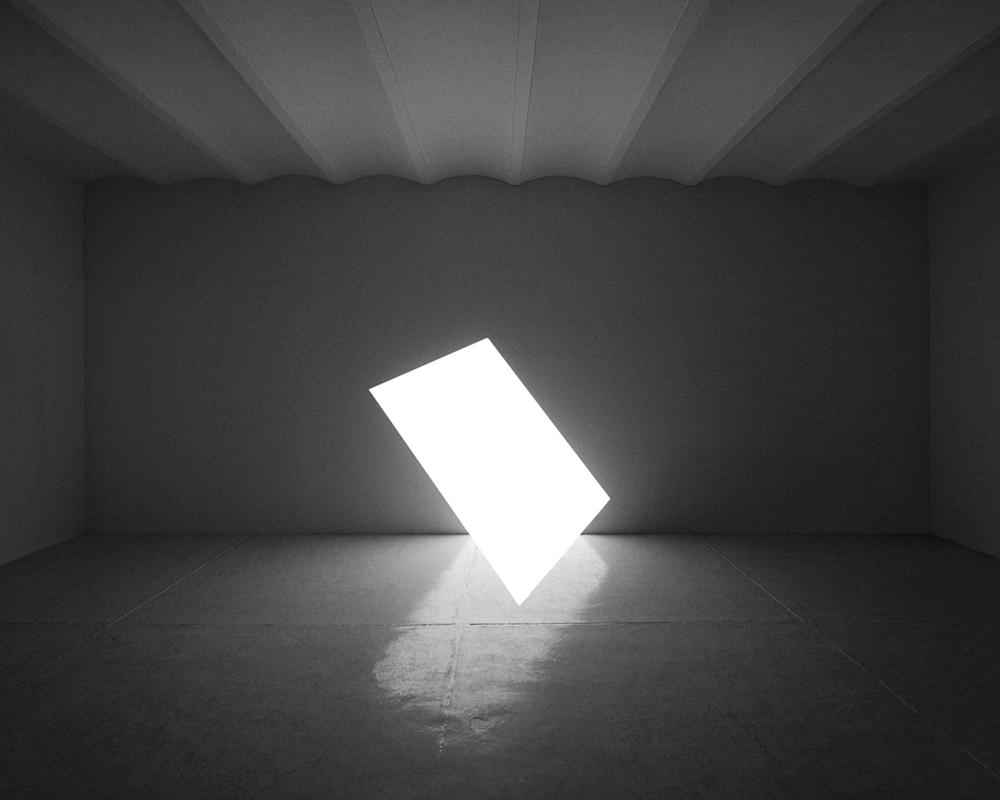TOKYO-2017 Architecture / Industrial
Aspects beyond the confined existance

Photography is essentially a means of documentation which serves as a tool for mapping
the visible and tangible world. Looking at it from a historical perspective, however, it has
been proved that photography is equally capable of producing delusory visions. In this
case, the spectacle was created by an analogue (not digital) trick. Squares produced by
projectors appear on different surfaces (walls, blacktop, etc.), when these light formations
become overexposed and burn out they produce the illusion as if real planes were floating
in the space. To that end, however, the squares must fit geometrically to the space, suiting
to the perspective. I found this technique incidentally. This is a trick which is based on
unwitting mistakes.
01. Take a look at an object which is familiar to you. You know right away what you can
expect from it; you can orient yourself in its present; you know what are the dos and
don’ts as well as where other things can be found. The world seems familiar. Now, watch
more that object, but turn your attention to the process and examine how you view
this object. This is reflexion. It reveals the perspective nature of seeing, which is always
a relation between an object and a particular point of view. The classical technique of
imaging is based on this relation. However, would it be possible to detach the object from
the viewpoint? Is there such an object which is not attached to a particular viewpoint?
Or the other way around: is there such a thing as pure seeing, or consciousness without
an object? The first set of questions examines the possibility of pure objectivity, while
the second set investigates the criteria of pure subjectivity. But what if this question
is based on a false dichotomy? What if there is a third alternative, namely, the relation
itself — without an object or a subject? This would be the problem of a self–existent
perspective. The pure form of perspective in the focus of the research is a projection,
which does not come from anywhere. If such a self–existent, pure perspective existed,
that would neither be an absolute viewpoint, outside the world, nor a constrained
subjectivity, in the world, rather a passage between the two. A way out from the
well–known world.
02. The core idea of classical physics — stretching back to Plato — contends that what really
exists is absolute, independent of coordinates and invariant regarding the transformation
of viewpoints. All what is connected to an observer is only a segment of reality; it is
perspective, a perplexing anthropomorphic remnant. The task of physics is to construct
the existent from these segments. However, quantum physics foiled this endeavour.
It does not refer to real attributes; instead it focuses on measurable quantities, the
ways in which things appear to the observer. These quantities cannot be understood
as perspectives of an underlying reality.
But then are perspectives the reality itself?
03. Understanding built spaces is a process as much as creating them. It takes time and
requires movement until built spaces reveal themselves. All our senses are involved
in this complex process. The experience starts off and returns to our body. We soon
recognise the structured characteristics of the wall–bounded space which, by the end,
becomes a personal and specific place. It is not certain whether a new place can become
a warm environment for us, but if we understand its foreignness, at least, we will not be
strangers there anymore. During this process we can find a particular spot or a direction,
where the space does no longer appear to be closed and self–contained. It opens up;
a threshold is found: the space of solitary dreariness becomes the place of dialogue.
texts by
dániel schmal (01)
gábor szabó (02)
gergely hartmann (03)







